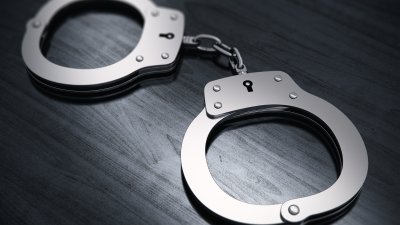Crime Prevention
American Fork Police Department Non-emergency phone number: 801-763-3040
American Fork Dispatch: 801-794-3970
“Waste Watch”
Waste Management, the city’s garbage service provider, has implemented a new program called “Waste Watch.” All garbage truck drivers are trained by Waste Management to watch for and report suspicious activities within the cities they service. We appreciate having alert drivers who will assist us in keeping our city safe.
Garage and Vehicle Burglaries
Recently, there have been a string of garage and vehicle burglaries. The burglaries are taking place during the day while homeowners are at home. Access is being made through unlocked exterior doors or open garage doors. As a police department, we ask that homeowners actively participate in prevention. Please take every precaution and ensure that garage doors are closed and locked when the garage is not in use. Likewise, take care to lock any other entrances to your garage. If your vehicles are parked on the street, be sure the doors are locked and any valuables are kept out of sight.
Traffic Speed Trailer
The City of Cedar Hills has purchased a traffic speed trailer. We are actively conducting traffic surveys throughout Cedar Hills. If you have an interest in having the traffic trailer in your area or neighborhood, please contact the city office.
“Grandma, Please Help, I’m in Jail”
There have been several reports to the American Fork Police Department of fraud geared toward the elderly in our communities. Scammers may pose as relatives, friends, city utilities, police officers, or correctional personnel, calling or sending messages to urge you to wire money immediately. Some of the emergencies they call about include:
Past due amount on utility account
Getting out of jail
Paying a hospital bill
Needing help to leave a foreign country
Warrant of arrest
One such case was reported to the American Fork Police Department on July 30, 2014. This particular grandmother received a call from a male claiming to be her 20-year-old grandson. The male told her he was in Los Angeles, and had been arrested after a traffic violation. Immediately after the male explained this to her, another male got on the phone and claimed to be a detective. He told “Grandma” that there were drugs found in her grandson’s car and he had been arrested. He continued to tell her that he believed her grandson was innocent; however, they needed him to be a witness. This con artists asked for $2,500 as a “witness fee” so they could move up her grandson’s court date. He instructed her to purchase green dot cards and call back with the card numbers.
Of course most grandparents will do anything for their grandchildren. Our victim was very concerned and followed the instructions of the fraudster. After she called and gave the card numbers, she called her grandson, who told her he had been at work all day and was not in Los Angeles.
Unfortunately, this type of scam is more common than you may realize, and these con artists prey on the good will of our elderly, who trust these callers and believe they are helping their grandchildren.
On many occasions these calls come from phone numbers that are not traceable or from out of the country. Because phone numbers are not traceable, there is usually no way to recoup money sent.
The Federal Trade Commission calls these “Family Emergency Scams,” and here are some examples of how they get away with it.
Impersonate your loved one convincingly. With the today’s technology and social networks, it’s surprisingly easy to sleuth out personal and family information.
Play on your emotions. Scammers are banking on your love and concern to outweigh your skepticism. In this particular scam, con artists impersonate grandchildren and police officers to distress or trick grandparents into sending them money.
Swear you to secrecy. Many con artists insist you keep their request for money confidential to keep you from finding them out.
Insist that you wire money right away. There is a lot of pressure to send money immediately. Often times the scammers will threaten harm or jail time of your loved one to encourage you to act quickly.
There are ways to verify, and avoid such scams.
Resist the urge to react immediately, no matter how urgent the call sounds.
Verify the person’s identity by asking questions that only the family would know.
Call a phone number for your family member or friend that you know to be genuine.
Check the story out with someone else in your family or circle of friends, even if you’ve been told to keep it a secret.
DON’T WIRE MONEY or PURCHASE GIFT CARDS OR GREEN CARDS – or send a check or money order by overnight delivery or courier.
Know that wiring money is like sending cash, and don’t send money to someone you don’t know. Most likely you can’t get this money back.
Report possible fraud at ftc.gov/complaint or by calling 1-877-FTC-HELP.
If you have any questions about whether or not something is a scam, please give us a call. We are happy to answer your questions.
Construction Site Burglaries
There have been a growing trend of construction site burglaries in our area. We have had several incidents where plumbing in residences has either been damaged or removed. We have also had several reports of construction material thefts at construction sites. These burglaries seem to be happening during the weekends when most job sites are left unattended. We ask residents to report any suspicious vehicles or people on construction sites after normal working hours or on weekends. If possible, a license plate number from those vehicles would greatly assist the police in resolving these crimes.
Vandalism to City Property
The police ask for residents to pay attention to city property. This is the time of year when an increase in property damage to park restrooms and equipment is reported. Please notify the police of any suspicious activity resulting in property damage. Cedar hills is a great place to live and work. Let’s work together to keep it that way.
Police Warn of Garage Burglaries
We encourage all citizens to secure their properties from would-be burglars. There have been an increased number of garage burglaries, occurring county-wide, with incidents even occurring in Cedar Hills. Please take some simple steps to help ensure you are not a victim:
Close Garage Doors
Make sure garage doors are closed and locked both day and night, including all man doors. Burglars are opportunistic; if your doors are locked, they will move on.
Write Down Serial Numbers
You can protect your property further by writing down the make, model, and serial numbers of your valuables. When the police recover stolen property, they use this information to return it to the owners. Without this information, your chances of getting your property back decrease dramatically.
Be Aware
Know what is going on in your neighborhood, and don’t be afraid to report suspicious persons and to write down license plate numbers.
The Ten Commandments of Crime Prevention
Install secure locks on doors and use them.
Leave lights on while you are away from home.
Adequately secure all windows.
Lock garage doors and windows.
Do not “advertise” that you will be away from home.
Be neighborly, but suspicious of strangers in the area.
Record serial numbers and maintain records of all your property.
Mark all property with your permanent Utah driver license number.
Organize your neighborhood into a Neighborhood Watch Program.
Call the police to report all crimes and suspicious activities.
Theft and Vandalism
The police advise homeowners to remove valuables, purses, and keys from vehicles, even when their vehicles are in the garage. Crimes of theft and vandalism are preventable if a few additional precautions are taken:
Do not leave your main garage door open. Our late-night patrol officers are still finding this to be very prevalent throughout the city.
Lock all exterior doors that access your garage.
Lock your vehicles at all times, including when they are parked in the garage.
Remove valuables such as purses and wallets from the vehicles or keep them out of sight.
Identity Theft
Identity theft is what many are calling America’s fastest growing type of robbery. However, crooks are working without the usual tools of the trade. Forget sawed-offs and ski masks; your social security number will do the trick, or that blank, pre-approved credit application you tossed out with today’s trash.
Millions of dollars were lost in the past year by financial institutions across the country. The perpetrator may use a variety of tactics to drain your finances: posing as a loan officer and ordering your credit report (which lists account numbers); “shoulder surfing” at the ATM to get your PIN number; “dumpster diving” in trash bins for unshredded credit applications, cancelled checks or bank records; or, until recently, notifying the postal service to redirect your mail to the address of choice, such as a mail drop, which allows anonymity.
It may be months before you are a victim, but when you get turned down for a mortgage on your dream house because you’ve got a bad credit rating and you know that you have paid your bills, beware: the ID thief may have struck again.
Do you carry your social security number in your wallet? That nine-digit code gives crooks access to your medical, financial, credit, and educational records. There are no legal restrictions on private-company use of social security numbers (SSNs); in fact, a data base of names with associated SSNs was recently found published on the Internet.
If you think you are safe after your wallet was lost or stolen because you canceled your credit card and put a “stop” on your checking account, think again. Once identity thieves have the information, they may open new accounts or lines of credit under your name for their own use.
Here are a few precautions that can make repairing the damage a lot easier.
1) Photocopy both sides of everything in your wallet: driver license, credit cards, etc., and keep the copies in a safe place. If your wallet is ever stolen or lost, you can easily locate the company telephone numbers to report the losses.
2) File a police report where the wallet was stolen or lost! It establishes a record to combat fraud. You will also have the credit card numbers and driver license number to provide the police, because you have a photocopy of all that information.
3) Notify your bank, the three credit reporting agencies listed below, and the Social Security Administration Fraud Line to put a fraud alert on your accounts and credit reports, which notifies these agencies that your information has been stolen and that they should notify you if anyone attempts to obtain credit in your name, using your personal information.
Equifax: 1-800-525-6285
Experian: 1-888-397-3742
TransUnion: 1-800-680-7289
Social Security Administration Fraud line: 1-800-269-0271.
4) Periodically check your personal credit report to see if there are any entries that do not belong there.
5) Do not place bills in your mailbox for the postman to pick up.
6) Shred pre-approved credit applications, credit card receipts, bills and other financial information, and all mail or documents that contain your personal identifying information.
7) Never disclose personal information over the phone, such as your date of birth, mother’s maiden name, credit card number, social security number, or bank PIN code, except to an established firm or someone you know.
Homemade bombs are dangerous and illegal
It has come to the attention of the police that some parents and adults are promoting the making of homemade bombs. With the growing popularity of this activity among teens, the police have asked us to alert parents that manufacturing and detonating such devices is illegal. This includes dry ice bombs and all the variations of that type of bomb, including using chemicals such as cleaning products and vinegar and bombs made from legal fireworks, such as black powder and sparklers.

